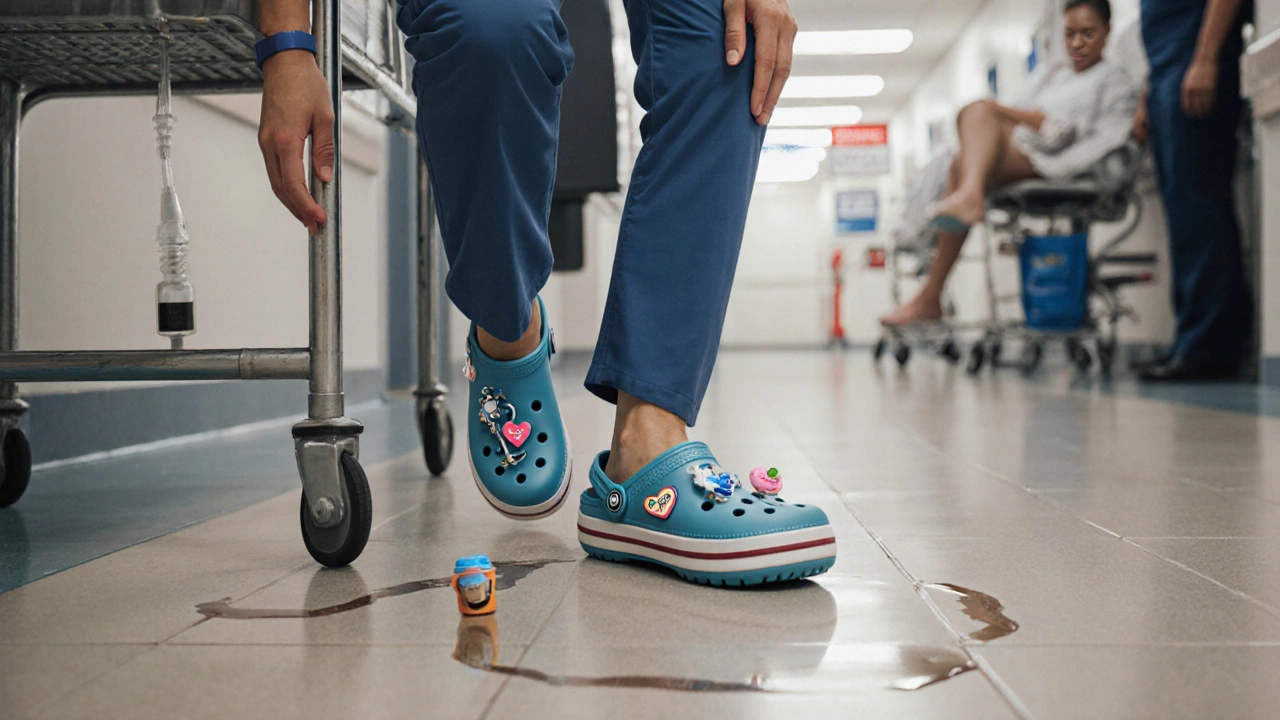Nursing Shoes: Comfort, Safety, and Style for Long Shifts
When you're on your feet all day, nursing shoes, specialized footwear designed for healthcare workers who spend hours standing, walking, and moving quickly. Also known as work shoes for nurses, they're not just about looking neat—they're your first line of defense against foot pain, fatigue, and injury. Unlike regular sneakers or dress shoes, nursing shoes are built for the real world of hospitals, clinics, and ERs—where slips, spills, and sudden sprints are part of the job.
These shoes are a mix of safety shoes, footwear that meets strict standards to protect against heavy objects, sharp tools, and chemical exposure, and work shoes, designed for long hours of standing with cushioning, arch support, and shock absorption. You don’t need steel toes like a construction worker, but you do need slip-resistant soles, breathable uppers, and enough cushioning to handle concrete floors all day. Podiatrists agree: the right pair can prevent plantar fasciitis, bunions, and chronic back pain. The wrong pair? It’s like walking on bricks with no warning.
What you’ll find in this collection isn’t just a list of brands or styles. It’s real talk from people who’ve been there—on their feet for 12 hours straight, dealing with spilled fluids, rushed codes, and aching arches. You’ll learn why some nurses swear by clogs, others by athletic-style shoes, and why a shoe that looks great in the store might be a nightmare after shift two. We’ll break down what matters: traction, weight, arch support, ease of cleaning, and whether you should even wear socks with them. No fluff. No marketing hype. Just what works on the floor.
These posts cover everything from how to pick the best nursing shoe for your foot shape to why some popular brands fail under real-world stress. You’ll see comparisons between safety-rated options and comfort-first designs, and why the same shoe that works for a nurse in a busy ER might be too heavy for a clinic worker. If you’ve ever wondered why your feet hurt after work—even if you didn’t think you were doing anything hard—you’ll find answers here. And if you’re shopping for your first pair, you’ll know exactly what to look for before you click buy.

Why Do Nurses Wear Crocs? The Real Reasons Behind the Trend
Nurses wear Crocs because they’re comfortable, easy to clean, slip-resistant, and affordable. After 12-hour shifts, these foam clogs are the only shoes that let them stand without pain.
